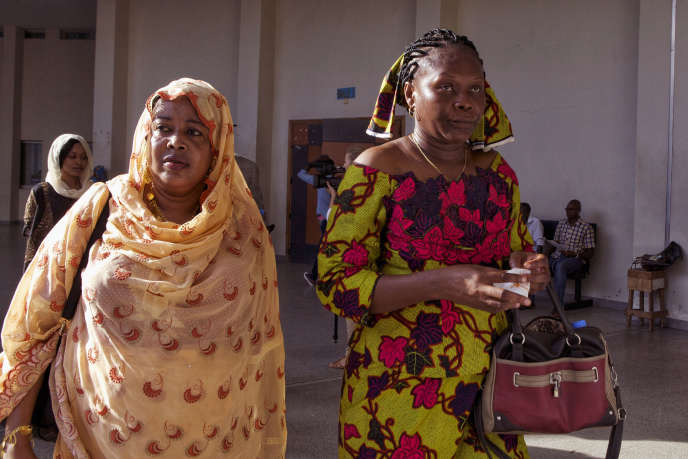
On May 30, 2016, after Chief Judge Gberdao Gustave Kam, of the Extraordinary African Chambers, read the decision against former Chadian despot Hissène Habré, there was momentary silence, and then all heaven broke loose: “After Kam delivered the verdict, it took a minute for the full weight of it to sink in. Then a quiet ululation went up from the victims’ benches. It was the widows, a row of brightly dressed women who had travelled from Chad to see what would happen to the man responsible for the deaths of their husbands. They stood and threw pieces of black cloth on the floor. After decades of waiting, they could finally celebrate. The courtroom erupted in cheers, and in weeping.” Jacqueline Moudeina and Delphine Djiraibé “clung to each other in relief.” Khadidja Hassan Zidane, Kaltouma Deffalah, Haoua Brahim, and Hadje Mérami Ali had broken decades of silence to report on the systemic and brutal sexual violence committed directly by Habré as well as his forces. From beginning to end, this is a story of women organizing, persevering and never giving up. Hissène Habré was brought to justice because women refused to accept injustice.
Habré ruled Chad from 1982 to 1990. When his reign of terror ended, people set to demanding justice instantly. Delphine Djiraibé returned from exile in 1990, and seeing the situation, founded the l’Association tchadienne pour la promotion et la défense des droits de l’homme, the Chadian Association for the Promotion and Defense of Human Rights, which she presided over until 2003. Jacqueline Moudeina returned from exile in 1995 and immediately set to work with Delphine Djiraibé. In 2004, Moudeina became President of the Association, and is to this day. The two set their eyes on the prize, and kept it there steadily for twenty six years, and that prize is more than one man. The prize is justice.
Moudeina and Djiraibé involved Human Rights Watch and others to do both research and to advise on legal matters. They joined with Souleymane Guengueng, founder of l’Association des victimes des crimes et répressions politiques au Tchad, the Association of Victims of Political Crimes and Repression in Chad, and Clément Abaïfouta, who took over when Guengueng had to flee. Then they set to work. In 2000, representing seven Chadian women, Modeina filed the first human rights complaint against Habré. The next year, Moudeina was almost killed by a hand grenade assault, which sent her to France for a year for medical care and from which she still suffers pain, fifteen years later: “The grenade became a challenge for me, to live and continue the legal work, and so I did.”
For many, the turning point of the trial was the testimony of four courageous women who gave direct witness to the sexual violence and exploitation they had suffered. Khadidja Hassan Zidane described the violence Habré had committed directly against her, and the other three testified to what they had experienced and witnessed. Their testimony changed the tenor of the proceedings and added to the charges against the torturer. Where originally Habré was charged with torture and murder, in December sexual slavery and rape were added to the charges. As lain Werner, director of Civitas Maxima, noted, “They were just women in the middle of the desert with soldiers, abused for a very, very long period of time. We fought very hard for the sexual violence to be brought back. Women suffered so much under Habré. It puts the whole sexual violence aspect back in the middle of the case, and it was very unexpected, to be candid.”
They were just women, women who suffered so much, and women who day by day year by year refused anything other than justice. The lawyers, the witnesses, the widows burst into weeping, cheers, embraces and applause, as should we all.

(Photo Credit 1: Coalition for the ICC / Twitter / Ruth Maclean) (Photo Credit 2: Le Monde / AP / Jane Hahn)